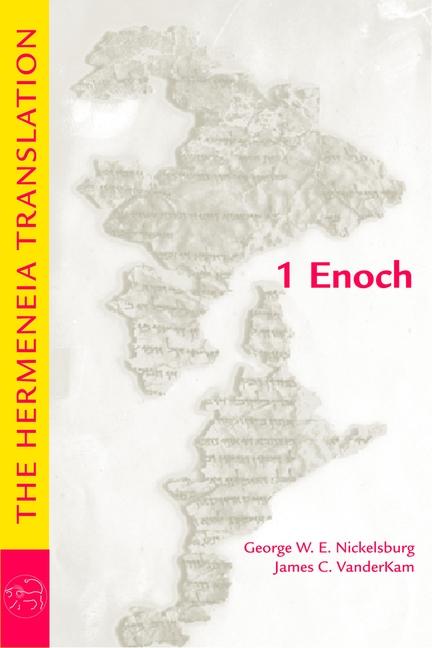1 Enoch : The Hermeneia Translation by George W E Nickelsburg and James C VanderKam

View book: 1 Enoch : The Hermeneia Translation
1 Enoch holds significant importance in ancient Judaism and was widely popular during that time. It has been well-preserved in numerous manuscripts discovered at Qumran, shedding light on the development of early Judaism and the origins of Christianity. George W. E. Nickelsburg and James C. VanderKam have recently revised their translation in conjunction with the publication of the complete two volumes on 1 Enoch in the Hermeneia commentary series. What sets this English translation apart is its incorporation of all the available textual data from the Ethiopic version, Greek texts, and even the Dead Sea Aramaic fragments.
The Book of Enoch: A Comprehensive Exploration
This Article is Brought to You by Speakeasy: Unraveling the Book of Enoch
This article will delve into the fascinating world of the Book of Enoch, which is an extraordinary example of derivative literature. While the Hebrew Bible provides only minimal information about the character Enoch, this spin-off text expands on his story with over 100 chapters and thousands of words. Early Jewish and Christian communities were unsatisfied with the vague references to Enoch in the book of Genesis, leading to the creation of the Book of Enoch.
The Book of Enoch was highly esteemed among early Christians, so much so that it is even mentioned in the New Testament. However, despite its popularity in ancient times, the Book of Enoch is relatively unknown today. In reality, there isn’t just one Book of Enoch – it comprises several texts brought together into one compilation. The oldest parts of the text likely date back to the 4th or 3rd century BCE, while the most complete manuscripts are written in the Ethioptic language and date to the 15th or 16th centuries.
Enoch’s journey from its original composition to the creation of complete manuscripts is quite fascinating. It was likely originally written in Aramaic before being translated into Greek and finally into the Ethioptic language. Fragments of the Aramaic version of Enoch were discovered among the Dead Sea Scrolls at the Qumran site. Over 90 different manuscripts of the Book of Enoch exist, but there are significant variations between them, making it important to find a reputable translation that accounts for these differences.
Now that we have a brief overview of the text itself, let’s explore the content of the Book of Enoch. To put it simply, the Book of Enoch can be described as spin-off literature. It takes brief mentions of Enoch in Genesis and expands them into a collection of visions and stories. For example, Genesis briefly mentions that Enoch walked with God and was taken away by Him, but offers no further explanation. The Book of Enoch elaborates on these snippets, introducing the concept of divine beings having relations with humans and the resulting birth of giants known as Nephilim.
The Book of Enoch is divided into five major sections, each with its own distinctive themes and narratives. One of its most significant contributions is its exploration of Jewish apocalypticism, a genre of literature prevalent during the second temple period. This genre describes mystical visions of the end times, final judgment, salvation, resurrection, and heavenly travels. Many of these concepts and themes found in the Book of Enoch predate the New Testament, including the term “son of man” and the expectation of a messiah.
Throughout its history, the Book of Enoch has had a profound impact on various religious traditions. Despite its influence among early Jews and Christians, it played a minimal role in modern Judaism, largely due to its rejection by Rabbinic Judaism. However, it did find a place in Kabbalistic texts and is still considered part of the biblical canon by the Ethiopian Orthodox Church. Additionally, the figure of Enoch appears in early Islamic traditions, associating him with the prophet Idris mentioned in the Quran.
In conclusion, the Book of Enoch is a captivating piece of literature that goes beyond its origins as a spin-off text from the Book of Genesis. It has influenced religious thought and belief systems for centuries, inspiring and shaping the theology of early Jews, Christians, and even Muslims. Despite its relative obscurity today, the Book of Enoch has left a lasting legacy in literature and religious discourse.







Leave a Reply